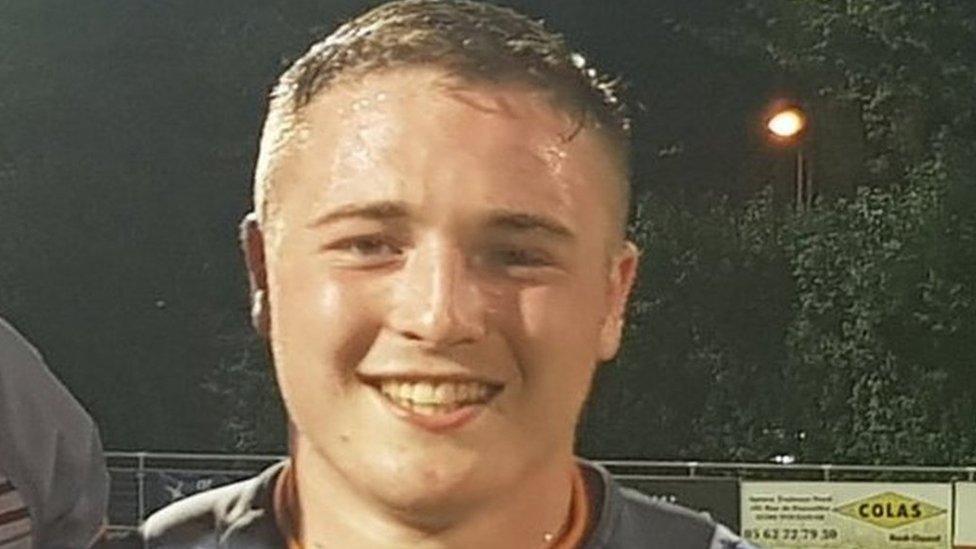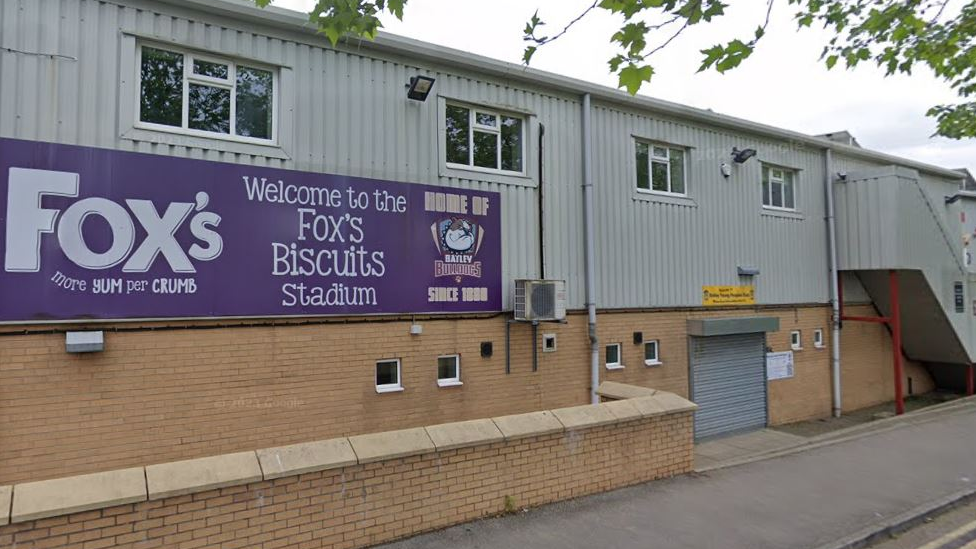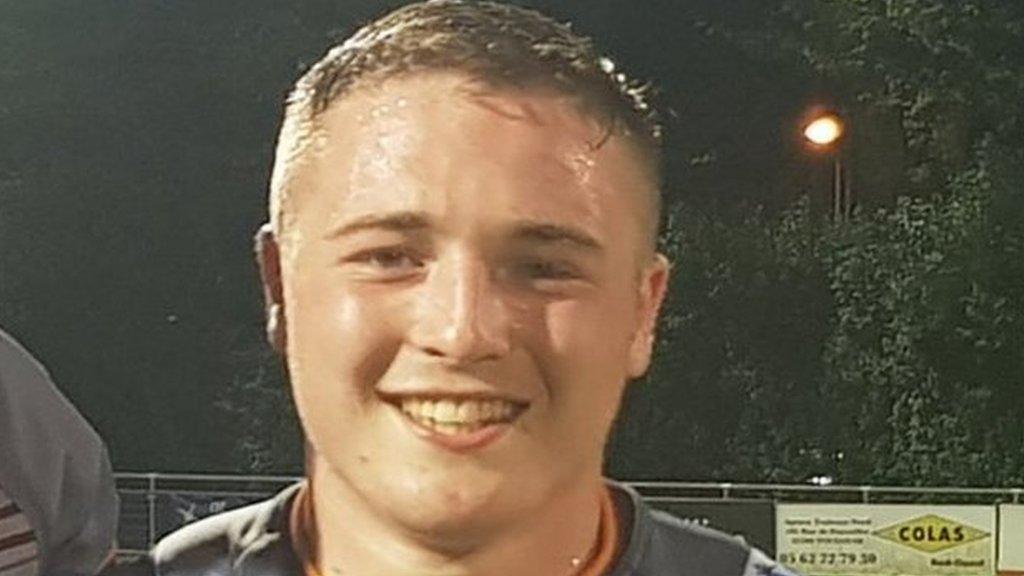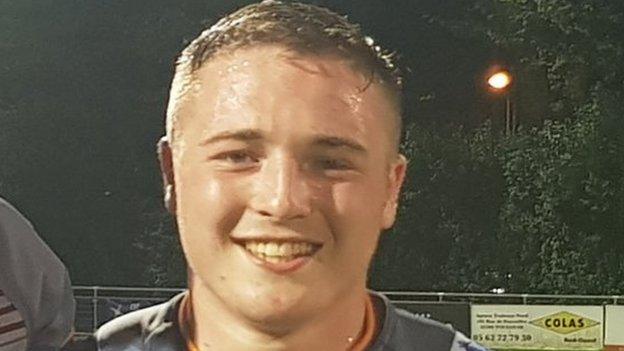Archie Bruce: Batley player, 20, had 'toxic' level of painkiller, inquest told
- Published

Archie Bruce, 20, died hours after he made his debut for Batley Bulldogs against Toulouse
A Batley Bulldogs rugby player had more than twice the "toxic" level of a prescription-only painkiller in his system when he died, an inquest heard.
Archie Bruce, 20, from Dewsbury, was found dead in a hotel room in France in August 2019, hours after making his debut for the side against Toulouse.
A post-mortem examination found Mr Bruce, a rugby league hooker, died as a result of asphyxiation.
His cause of death was accidental, an inquest concluded on Wednesday.
Giving evidence at Bradford Coroner's Court, Dr Faisal Ali said a "very high concentration" of tramadol was found in Mr Bruce's body.
A toxicology report also discovered alcohol and cocaine in Mr Bruce's system, as well as the presence of another painkiller only available in the UK via prescription.
But the level of tramadol alone which was present in his body was more than double the level considered "toxic" and potentially fatal, Dr Ali told the court.
Rugby league's governing body, the RFL, banned the in-competition use of tramadol by players from 1 January this year.
'Bright future'
Mr Bruce had been on a team night out after making his debut in the second half of the match before returning to the team hotel in the early hours, where he was found unconscious hours later.
In a statement, Mr Bruce's family said his professional debut was "the culmination of his short life's dream".
"Archie had a bright future ahead playing the sport he loved," they said.
Batley Bulldogs chairman Kevin Nicholas said the young player had been on trial with the club after impressing while playing for amateur side Dewsbury Moor.
The Championship side had planned to offer him a contract following his debut.
"Sports-mad" Mr Bruce began playing rugby league aged six, following in the footsteps of his two brothers, his family said.
By the age of 13 he had decided he wanted to become a professional rugby player and had focused on achieving this goal in the months leading up to his death.
He was in good health and did not take drugs, his family added.
In a statement, they said: "Archie loved playing rugby league.
"Having just played his professional debut, Archie was excited, impressionable, vulnerable and wanting to fit in."
'Keep it under wraps'
He had been drinking heavily and told one of his teammates he had taken drugs on the night out.
The use of tramadol was common among Batley's players at the time, the hearing was told.
They used the drug to treat muscle soreness and on nights out to improve the feeling they got when drinking alcohol.

Batley planned to offer a contract to Mr Bruce, the inquest heard
Some members of the team also used cocaine, with one member of the squad admitting in a statement: "Everyone knows, you just have to keep it under wraps."
Police found no evidence of the drugs being supplied by anyone connected with the club.
The club's management were said to be unaware of the drug use that took place.
Mr Nicholas said the squad had been warned about their conduct at the start of the season and they had to complete educational modules from the RFL on drug use before they could play.
'Enhanced safeguarding'
The club has since created a code of conduct for its players, he revealed, which would be in place for the 2024 season.
The family's statement continued: "The inquest has highlighted the need for a robust code of conduct with enhanced safeguarding.
"This must be implemented by the RFL and its member clubs to make sure this tragedy doesn't happen again."
Senior coroner Martin Fleming said Batley's new code of conduct was "long overdue".
He recorded a verdict of accidental death, describing Mr Bruce as "naïve" towards drug-taking amid the "euphoria" of his debut.
Mr Fleming did not rule out issuing a special report calling for action to prevent future deaths.
He said the RFL's participation in process would be welcomed, as well as that of "anyone who feels they can make a contribution".
If you have been affected by any issues raised in this report, you can find more help and advice via the BBC Action Line.

Follow BBC Yorkshire on Facebook, external, X (formerly Twitter), external and Instagram, external. Send your story ideas to yorkslincs.news@bbc.co.uk, external.
- Attribution
- Published23 August 2019

- Attribution
- Published18 August 2019

- Attribution
- Published18 August 2019
